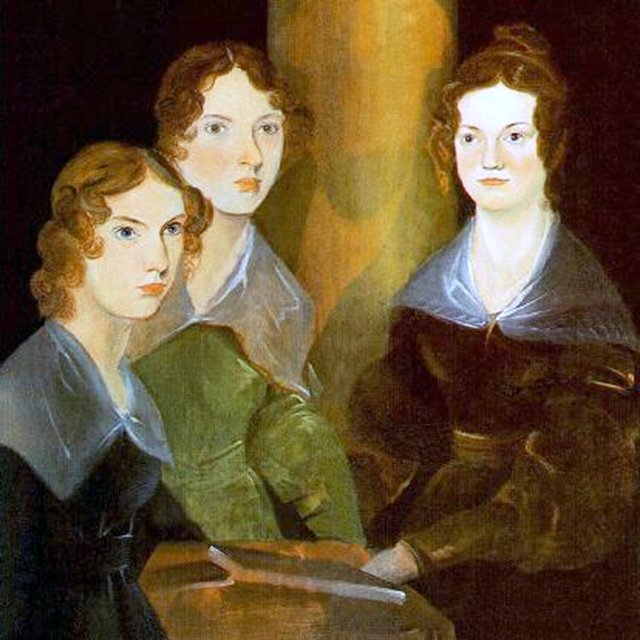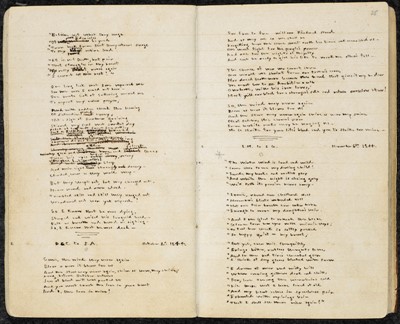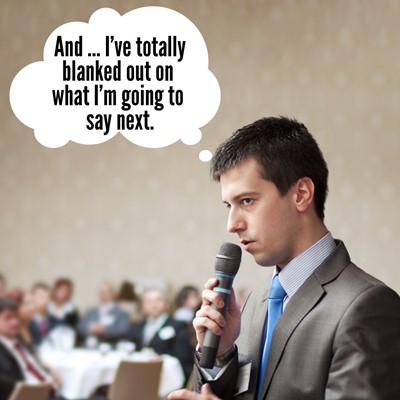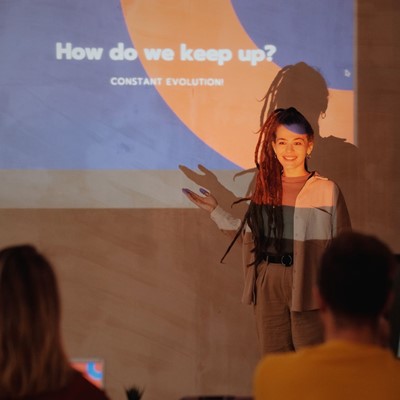
The Buckley School's founder believed that all public speakers should hone their presentation skills by reading poetry out loud. We keep that worthwhile practice alive by including a poem in our magazine each month for you to read aloud. Above a portrait of the Brontë sisters, painted by their brother Branwell in 1834. Emily, center, was around 16 years old.
"She was a serious poet who wrote dozens of poems with no intention of publishing or even showing them to her family."
– Siobhan Craft Brownson on the poetic side of Emily Brontë
She is famous for writing a novel that’s become a classic, yet poet Algernon Swinburne saw a poet in Emily Brontë, calling Wuthering Heights "essentially and definitely a poem in the fullest and most positive sense of the term."
The creator of Cathy and Heathcliff published a small book of poems with her sisters Charlotte and Anne, Poems by Currer, Ellis, and Acton Bell in 1846. Emily Brontë (a.k.a. Ellis Bell) contributed just 21 poems to that volume, yet it’s been discovered she wrote nearly 200.
 Emily Brontë's poems, as she recorded them in her notebook.
Emily Brontë's poems, as she recorded them in her notebook.
Winthrop University Professor Siobhan Craft Brownson says fathoming Brontë, the poet, is not an easy assignment. For one, her sister Charlotte revised some of the poems after Brontë's death to make them more socially acceptable to their contemporary readers. He describes the challenges:
She wrote most of her poetry during what is technically the Victorian period, but her exploration of the self, the imagination, and the visionary associate her more closely with Romantic poets.
She was a woman poet who did not bemoan the lack of "literary grandmothers," as Elizabeth Barrett Browning did.
She was a serious poet who, like her peers Emily Dickinson ... and, later, Gerard Manley Hopkins, wrote dozens of poems with no intention of publishing or even showing them to her family.
Brontë was, by all accounts a shy woman who enjoyed inventing and writing about fantasy worlds with her siblings far more than she liked encounters with real people.
As a girl, she attended a harsh boarding school much like the one her sister Charlotte describes in Jane Eyre. She was only 30 years old when she died, a year after the publication of Wuthering Heights. She never knew the fame her work achieved.
Below, a poem by Emily Brontë for you to read aloud:
Often rebuked, yet always back returning
By EMILY BRONTË
Often rebuked, yet always back returning
To those first feelings that were born with me,
And leaving busy chase of wealth and learning
For idle dreams of things which cannot be:
To-day, I will seek not the shadowy region;
Its unsustaining vastness waxes drear;
And visions rising, legion after legion,
Bring the unreal world too strangely near.
I’ll walk, but not in old heroic traces,
And not in paths of high morality,
And not among the half-distinguished faces,
The clouded forms of long-past history.
I’ll walk where my own nature would be leading:
It vexes me to choose another guide:
Where the gray flocks in ferny glens are feeding;
Where the wild wind blows on the mountain side.
What have those lonely mountains worth revealing?
More glory and more grief than I can tell:
The earth that wakes one human heart to feeling
Can centre both the worlds of Heaven and Hell.






